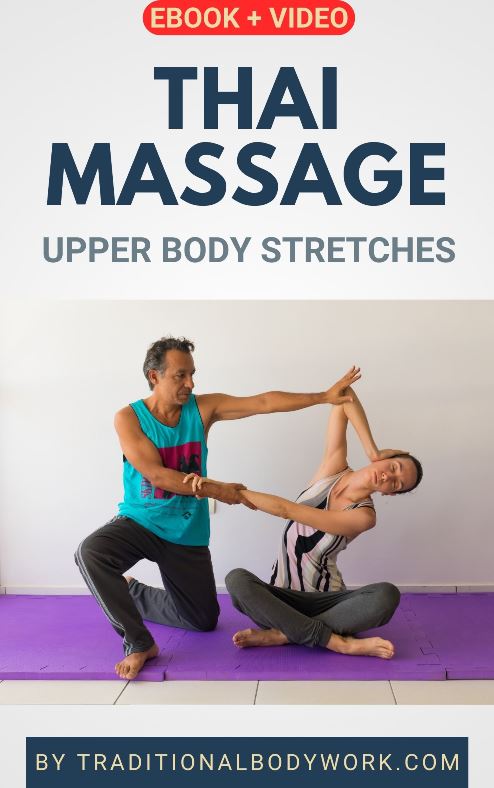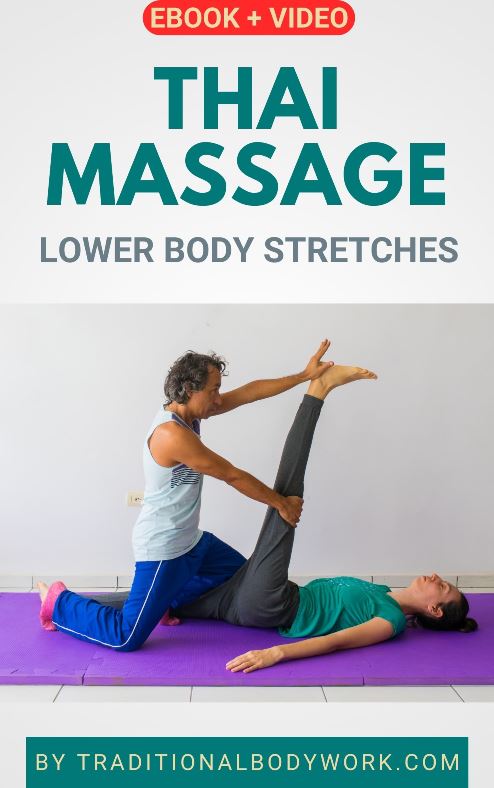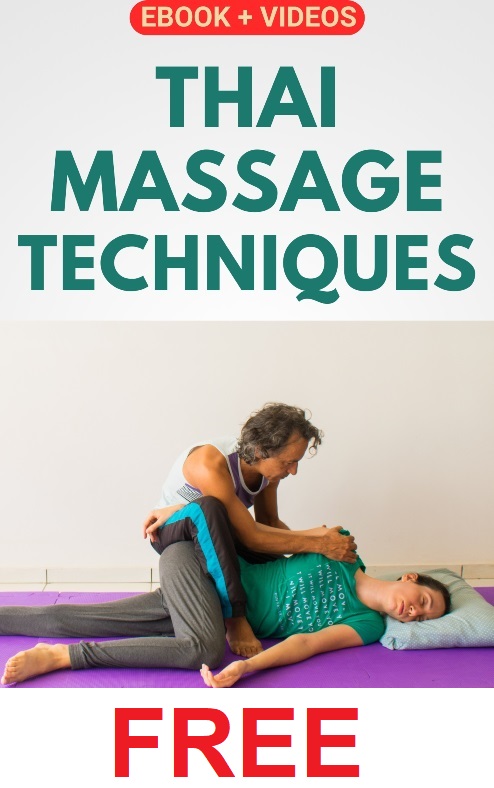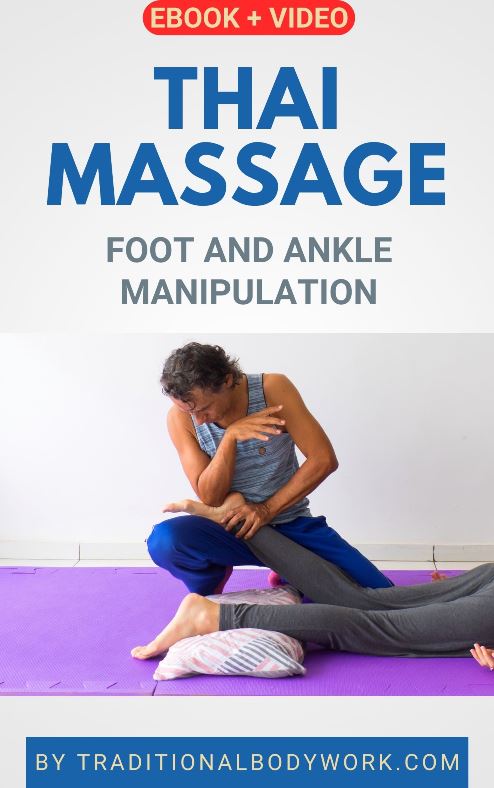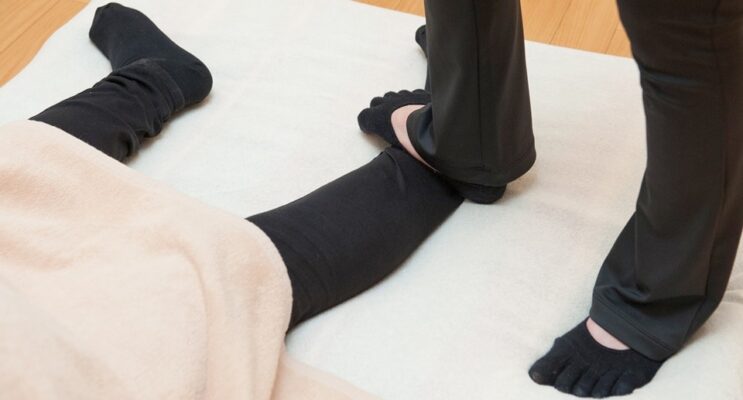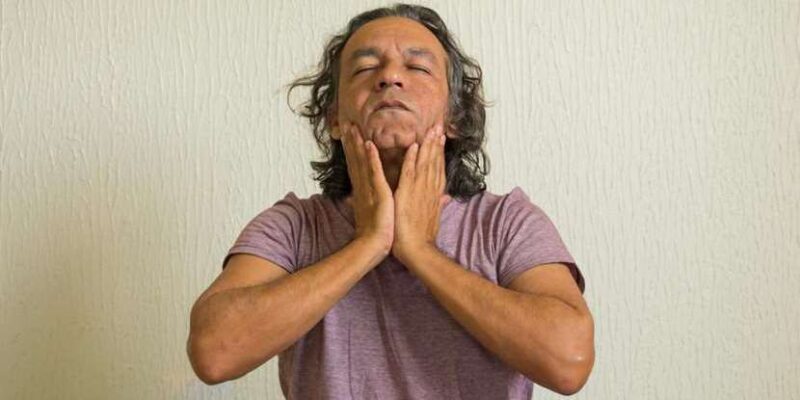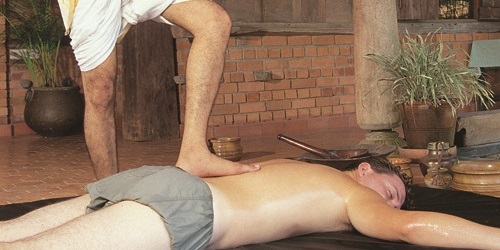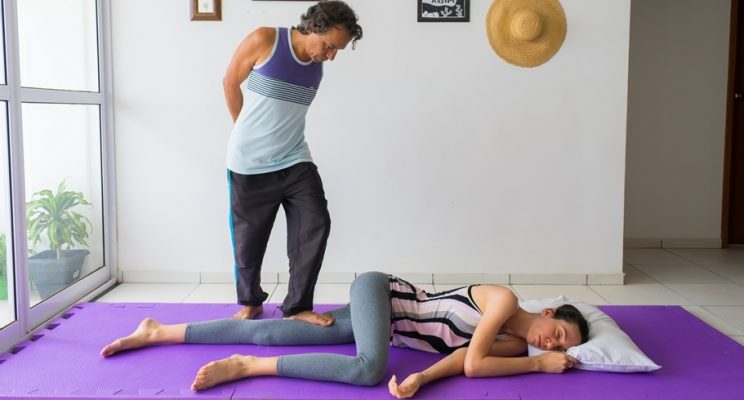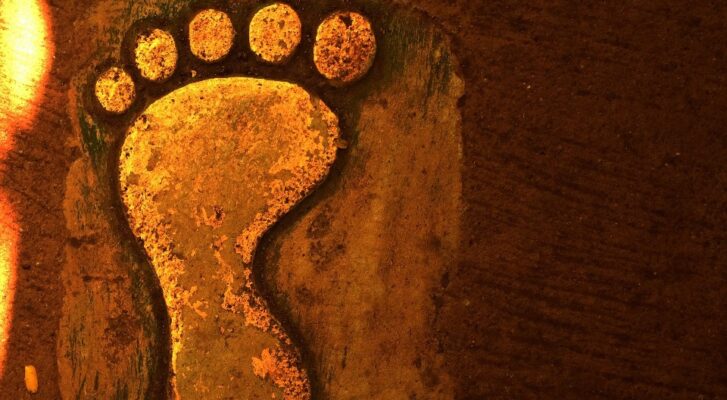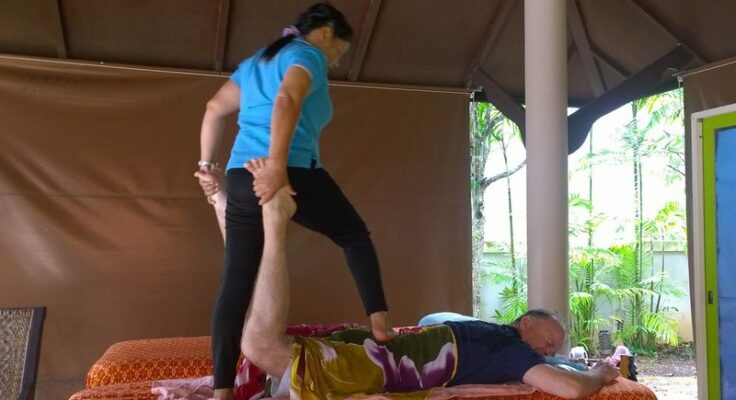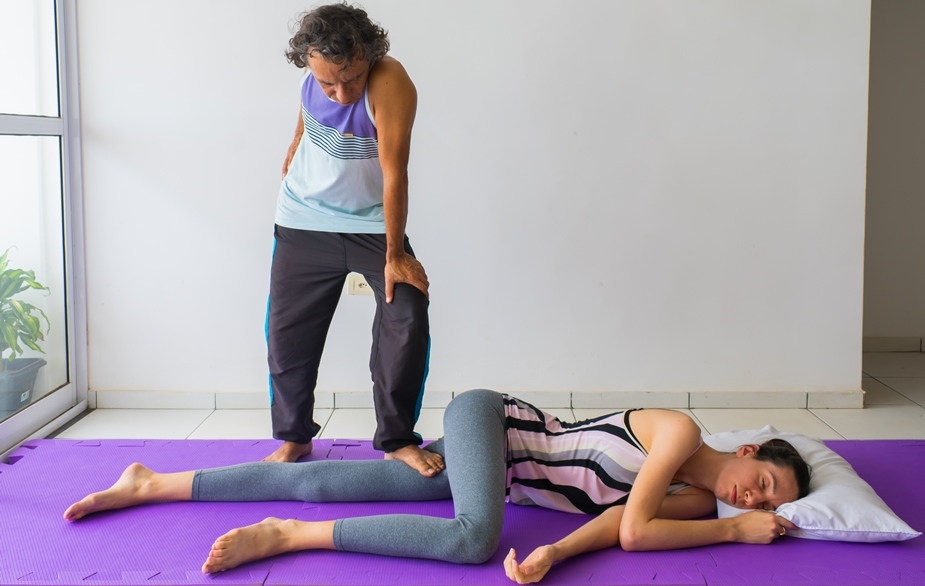
Barefoot Massage is not “just” using the feet to give a massage. First of all, it’s typically carried out as a full body massage with the receiver lying in a variety of positions, which include the prone (receiver lying on the belly), supine (receiver lying on the back), and the side lying position.
Furthermore, it’s important how the feet are used to give the massage. You can give pressure with the toes, the ball of the foot, the instep (arch) of the foot, the side, the heel of the foot, or with the entire foot. During a massage session you would typically use all these types of foot-pressure techniques, depending on the body parts you massage, or the amount of pressure you want to give.
The Heel
Working with the heel of the foot is quite firm and intense, more directed (or pointed) to one specific spot of the body, and feels like strong acupressure for the receiver. Nevertheless, the therapist needs quite some control of his or her balance to effectively and safely massage with the heel.
Toes and Ball of the Foot
With the toes and/or ball of the feet you can give gentle to medium firm pressure, being directed to a smaller portion of body tissue. Mind that some parts of the body don’t allow access with the entire foot or instep, and as such you may be “forced” to massage certain parts with the toes or ball of the foot.
Side of the Foot
Using the sides of the feet can be quite strong, and can give fine-grained control over an area i.e. muscle group near a bone, such as the muscles along the spinal column or the pectoral muscles around the collar bone.
The Arch or Instep
The arch or instep of the foot enables to “envelop” a muscle or muscle group, and gives a warm, evenly spread-out feeling for the receiver, while being able to give good sustained pressure. This also counts for using the entire foot.
Additional Tools
Especially when the Barefoot Massage includes the use of oil it becomes even more difficult to keep balance and to not slip away.
Slipping away with the foot can be outright dangerous, that is, it may hurt the receiver. In such cases it’s common to use a stick, rod, or suspended bar or a rope to keep balance while pressing with the foot (or both feet) on a receiver.
In Conclusion
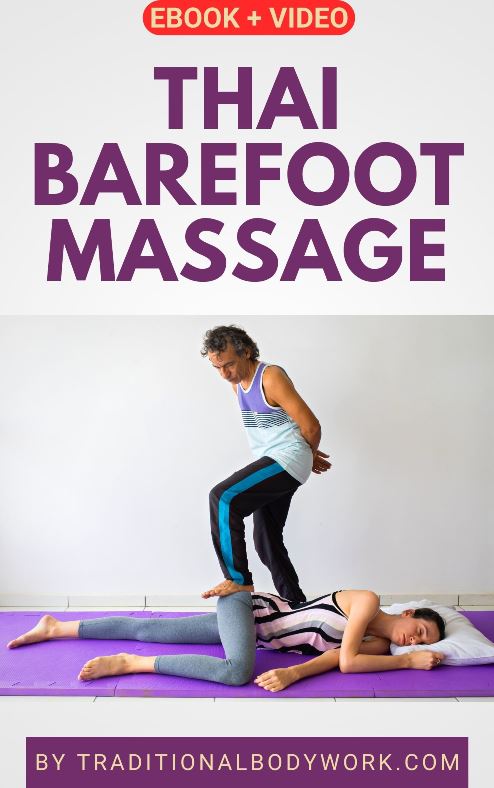
Mind that it’s very important to accurately balance i.e. measure the amount of pressure you give, and in general, it takes quite some practice and experience to proficiently give a fluent and safe Barefoot Massage.
Massage given with the feet can be very intense for the receiver, and you need to be careful with giving pressure on certain specific body parts, such as the abdomen, the chest, ribs, and chest bone (sternum), shoulder blades, the neck and head.
It’s perhaps needless to say that you should never give pressure directly on the bones, which is a general rule in massage therapy, of course.

